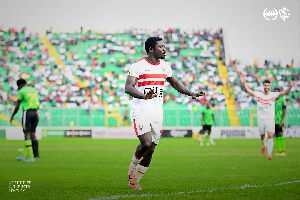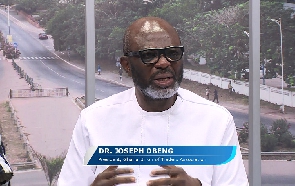- Home - News
- TWI News | TV
- Polls
- Year In Review
- News Archive
- Crime & Punishment
- Politics
- Regional
- Editorial
- Health
- Ghanaians Abroad
- Tabloid
- Africa
- Religion
- Election 2020
- Coronavirus
- News Videos | TV
- Photo Archives
- News Headlines
- Press Release
General News of Thursday, 25 November 2010
Source: GNA
One out 17 water systems in UWR not functioning
Wa, Nov. 25, GNA - Only one out of 17 pipe water systems installed in the Upper West Region at Busa in the Wa Municipality, is functioning properly at present.
Mr Worlanyo K. Siabi, Upper West Regional Director of the Community Water and Sanitation Agency (CWSA), who announced this, warned that if nothing was done to the 16 dysfunctional water systems, they would collapse within the next five years. Mr Siabi was addressing stakeholders in the water and sanitation sector at a regional Annual WASH Review workshop on the United Nations Children Fund (UNICEF) assisted water and sanitation and hygiene programme in Wa on Wednesday.
He said the CWSA has initiated a programme to dialogue with the districts and the water and sanitation development board. He announced that 1,739 boreholes had been installed throughout the region representing 78 per cent of its water coverage. Mr Siabi said the World Bank had agreed to support the region among five others to implement a Sustainable Rural Water and Sanitation Project in the Wa East, Wa West, Wa Municipal, Lambussie-Karni, Sissala East and Nadowli districts. The selection of the districts was based mainly on the low water coverage compared to other areas and it is hoped that as the implementation progresses, more districts would be added. Mr Siabi announced that procurement for consultancy services had already started on the project, which would span five years. Apart from the World Bank support, the Ghana Cocoa board was also assisting the CWSA to implement the drilling of 130 boreholes in the communities to enhance the provision of potable water to the people. Mr Siabi said government was also supporting the drilling of 37 boreholes in some communities known to be prone to guinea worm disease and work on those projects had already started. On sanitation, he said, it remained the biggest challenge of the region, with coverage well below 10 per cent. "We are not likely to meet the Millennium Development Goals target of more than 56 per cent coverage if we do not change our commitment in the coming years.
"It is therefore an important step UNICEF had taken to support districts to scale up coverage as well as the poverty reduction objectives envisaged", he added.
Alhaji Issahaque Salia, Upper West Regional Minister, who opened the workshop, commended the role stakeholders played in ensuring the provision of safe water, good sanitation and improved hygiene programmes that had led to the overall good health of the people. He also commended UNICEF for its interventions in the water and sanitation sector, saying: "This is the first of its kind in the region besides the support in education, health and disaster management". Alhaji Salia said the project would provide an effective system for hygiene promotion to enable more than 100,000 people to have knowledge of and practice improved hygiene behaviour in the region. He said 40 rural communities and 20 schools in five districts would be provided access to and the use of improved water and sanitation facilities in addition to functional system at the regional level for effective coordination and management of WASH sector response to emergencies by 2011. Alhaji Salia urged beneficiary district assemblies to be more serious and committed to the success of the project objectives. He announced that government would provide 20,000 boreholes throughout the country over the next five years starting from 2011 fiscal year. He said World Bank funded five small towns piped water supply systems at Busa, Charia, Kaleo, Babile and Funsi had been completed during the year and handed over to the community members.
Alhaji Salia reminded members of the beneficiary communities and their district assemblies to play their ownership and oversight roles on the operations of those facilities to ensure that the systems were sustainable. The workshop was to evaluate achievements made so far on the project. The expected outcomes of the intervention are: to increase sanitation coverage through application of Community led Total Sanitation Strategy in the five districts. It would also help to consolidate water and sanitation coverage in small communities and towns as well as implement the District Monitoring Evaluation System at district level.










